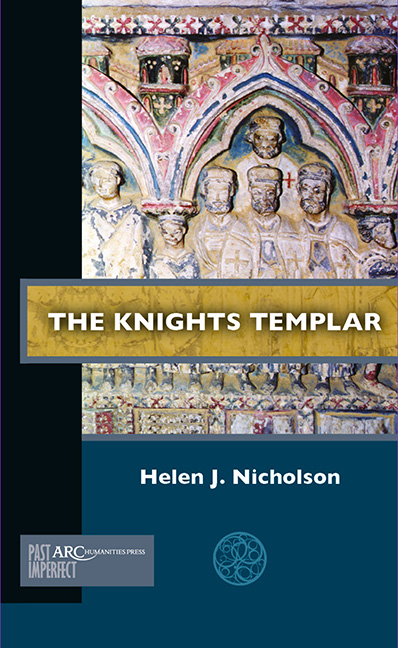Chapter 2 - The Concept
Published online by Cambridge University Press: 18 June 2021
Summary
Christianity has always been in at least two minds over the validity of violence. On the one hand, the Ten Commandments prohibit murder; on the other, there is a moral imperative to defend the defenceless.
Some leading churchmen expressed approval of the concept of the military-religious order. Abbot Bernard of Clairvaux insisted in his letter for Master Hugh de Payns that the Templars were a new concept, a new militia or knighthood, and that when the brothers fought non-Christians in defence of Christians their fighting was necessary and spiritually valid. Bishops Otto of Freising and Anselm of Havelberg agreed. Abbot Guigo of La Grande Chartreuse wrote to advise the Templars in their spiritual battles and prayed that the mercy and power of God would enable them to triumph gloriously in spiritual and physical battles. Peter the Venerable, abbot of Cluny, wrote positively to Everard des Barres, third master of the Temple (d. 1152), praising the brothers for fighting both spiritual and physical wars and for being monks by their virtues, knights by their deeds (writing to Pope Eugenius III he was less positive, describing the Templars as simply a militia).
However, the contemporary writer who called himself Hugo Peccator (that is, “Hugh the Sinner”) indicated that other, nameless, commentators had criticized the Templars’ military activity, calling it illicit, harmful, and an obstacle to spiritual process. Hugh argued that the Templars followed a religious lifestyle, with fasting and self-denial. They were not guilty of hatred, because they hated wickedness, not humans; they were justified in taking plunder, because they had earned it through their work; and their active work for God was as valuable, or more valuable, than prayer and contemplation. He urged the Templars to remain at their posts and continue their valuable work for God.
Scholars have not agreed who Hugo Peccator was: perhaps he was Hugh de Payns, first master of the Templars; perhaps he was the eminent theologian Hugh of St. Victor; he might even have been Count Hugh of Champagne, Hugh de Payns's overlord, who joined the Templars in around 1125. There are strong arguments for the first two of these. In any case, the letter—which survives in only one copy, suggesting that it did not circulate widely—shows both the objections which could have been made against the concept of the Templars and how the brothers and their supporters could have answered them.
- Type
- Chapter
- Information
- The Knights Templar , pp. 21 - 32Publisher: Amsterdam University PressPrint publication year: 2021



